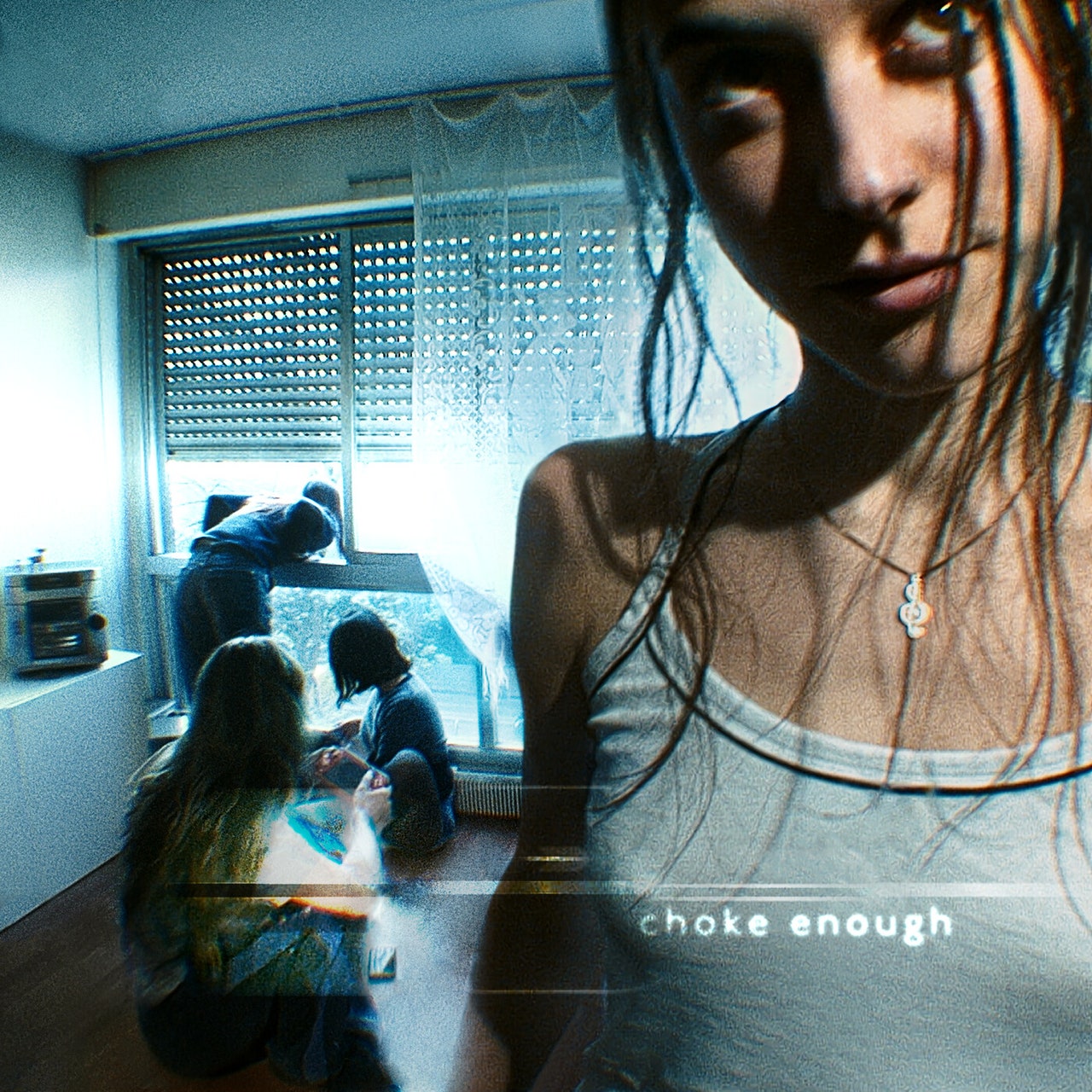Marylou Mayniel might be a traditionalist at heart. “I’ve gotten tired of the internet,” she recently told Crack—striking news for the singer and producer whose first release as Oklou, 2020’s Galore, made her name (pronounced “OK, Lou”) among a certain sect of the terminally online. A classically trained French musician turned London club kid, Mayniel makes electronic pop with the rigor and meticulousness of a Bach cantata. Her debut album, choke enough, is a foggy, twilit fusion of Y2K worship and medieval melodicism, with A.G. Cook and Danny L Harle joining longtime co-producer Casey MQ behind the boards. At once jacked into the mainframe and lost in the wilderness, the record casts Oklou as a cipher in her own music; even as we hear her, we never really know her.
As a founding member of NUXXE, the label and collective that has come to define a certain “art schoolers go to Berghain” sound, Mayniel stood out among her contemporaries for her relative reserve: neither as sensual as Eartheater nor as bawdy as Shygirl. Galore songs like “fall” and “god’s chariots” were puckish and subtle, built on little more than acid-synth arpeggios and the occasional drum loop. Last year, though, I saw Oklou perform in a seventh-story walkup on the Lower East Side. Watching Mayniel’s hands dance nimbly across the keyboard, assembling loops in real time, each instrument—even the guitar she sheepishly picked up to play the then-unreleased single “Blade Bird”—felt like an extension of her person. This, it appeared, must be the world’s most charming cyborg.
On choke enough, that highly skilled performer comes into her own as an artist. The title track is easily Oklou’s best to date, channeling the muffled ambience of a “you’re in the bathroom at a party” video through four minutes of metamorphic trance. In the absence of a four-on-the-floor rhythm, its shifting synth timbres create the effect of a sculpture viewed from different angles, a quality of constantly becoming—yet never quite reaching—shared across most of the songs here. Album opener “Endless” unfurls from a distant hemiola to a misty ballad to a charmingly hesitant keyboard solo: a lone oboe preset that wanders into the mix before almost self-consciously ceding the spotlight back to Mayniel.
Uncanny textures abound. On “Thank You for Recording,” Oklou and her synth flute trade melodies like a cyberpunk Disney princess duetting with the robot bird perched on her finger. The arrangement harkens back to Prokofiev’s Peter and the Wolf, a symphony for children in which each instrument stands in for a different character. Mayniel’s conservatory background crops up throughout choke enough, specifically in her fondness for imitative polyphony, a hallmark of Baroque composition where melodic lines are shared between multiple instruments. The sugar rush of “Ict” boasts a trumpet refrain that plausibly could’ve been written during the 1600s, and the digi-clarinet and tambourine of “Obvious” are straight out of a Renaissance fair. In Oklou’s hands, hyper-quantized digital beats make natural counterparts to the equally precise music composed centuries earlier.
